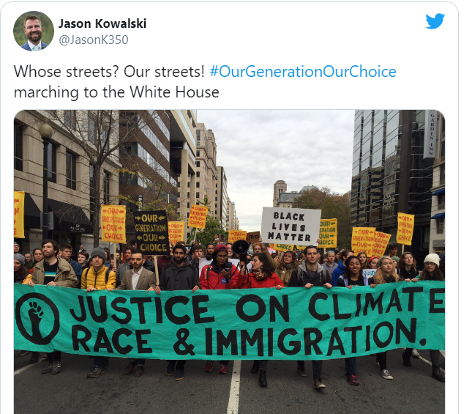Hello! I’m Scott Chaplowe here to tell you about our Presidential Strand session, Evaluation and the Challenge of Our Time Friday, Oct 30, 1:30 PM – 2:15 PM, (Session #1917). Sponsored by the Environmental Program Evaluation TIG, it will shine a light on the intersection of climate change and evaluation. In addition to myself, the session will consist of Nicky Bowman, Khalil Bitar, Allison Van, Andy Rowe, Beverly Parsons and Michael Quinn Patton.
Door number 1, you eat your kids’ futures. Door number 2, you fight for their futures. That’s all the doors there are. And there’s precious little time left to make your choice.
-Raúl Ilargi Meijer, blogger, The Automatic Earth
The origin of this session illustrates qualities of emergence characteristic of transformational learning and change. It started with an email thread early in the year responding to evaluators’ concern about climate change at last year’s AEA conference in Minneapolis. Email exchanges included over 30 people from TIG leadership in international, environmental, humanitarian, and systems evaluation; evaluators from other VOPEs (evaluation associations/societies) and related networks, such as EvalYouth, EvalIndigenous, EvalGender, EvalSDGs and Eval4Action; and prominent evaluation thought leaders. The rallying call to action was:
The urgency of climate change presents an opportunity for collective action on what is arguably the most pressing challenge we face not just as evaluators, but as inhabitants on this planet.
The emergent, informal community of practice culminated in a 2-hour online workshop in April. One area of consensus in the discussion was that there is no single recipe for climate change action, but rather a multiplicity of possibilities that will emerge and evolve in our complex systems over time.
If we are to think and move outside of our current trap, we need a collective and inclusive approach that empowers a diversity of perspectives and potentialities.

Another discussion point was that the climate crisis mirrors and accelerates social crisis. In the US, low-income households spend nearly four times as much on energy costs than non-low-income households, partly due to a history of racist energy policies that have left them with more inefficient homes. Black, Native American, and Latino population groups die and suffer illness at a higher rate as a result of air pollution, toxic exposure, and large weather events due to the fossil fuel emissions.
The most vulnerable are the people least responsible for the climate crisis, yet they disproportionately bear the burden.
Come to our session to continue the discussion and learn how evaluators can make a difference during these critical times. In addition, the EPE TIG and Blue Marble Evaluation will jointly host a post-session, independent and open workshop next week, (the week after the conference[SC1] ) for more participatory interaction on the topic: the specific time will be announced during the session. Other related sessions during the conference include:
- EPE TIG meeting (Tuesday, 5:30-6:30)
- EPE TIG BYO-everything Reception with Beverly Parsons, Michael Quinn Patton and more (Tuesday, 6:30-TBD)
- Applying trauma-informed evaluation to climate change disasters (Friday, 10-10:45)
- Climate Change is a Wicked Problem – how can evaluators help funders and program staff learn quickly enough? (Friday, 12-12:45)
- Evaluators’ Role in Creating a More Inclusive Climate Resilient World (TBD)
- 40 Years of Utilization-focused Evaluation Culminating in Blue Marble Evaluation, Wednesday, (1-1:45)
Do you have questions, concerns, kudos, or content to extend this aea365 contribution? Please add them in the comments section for this post on the aea365 webpage so that we may enrich our community of practice. Would you like to submit an aea365 Tip? Please send a note of interest to aea365@eval.org. aea365 is sponsored by the American Evaluation Association and provides a Tip-a-Day by and for evaluators.
